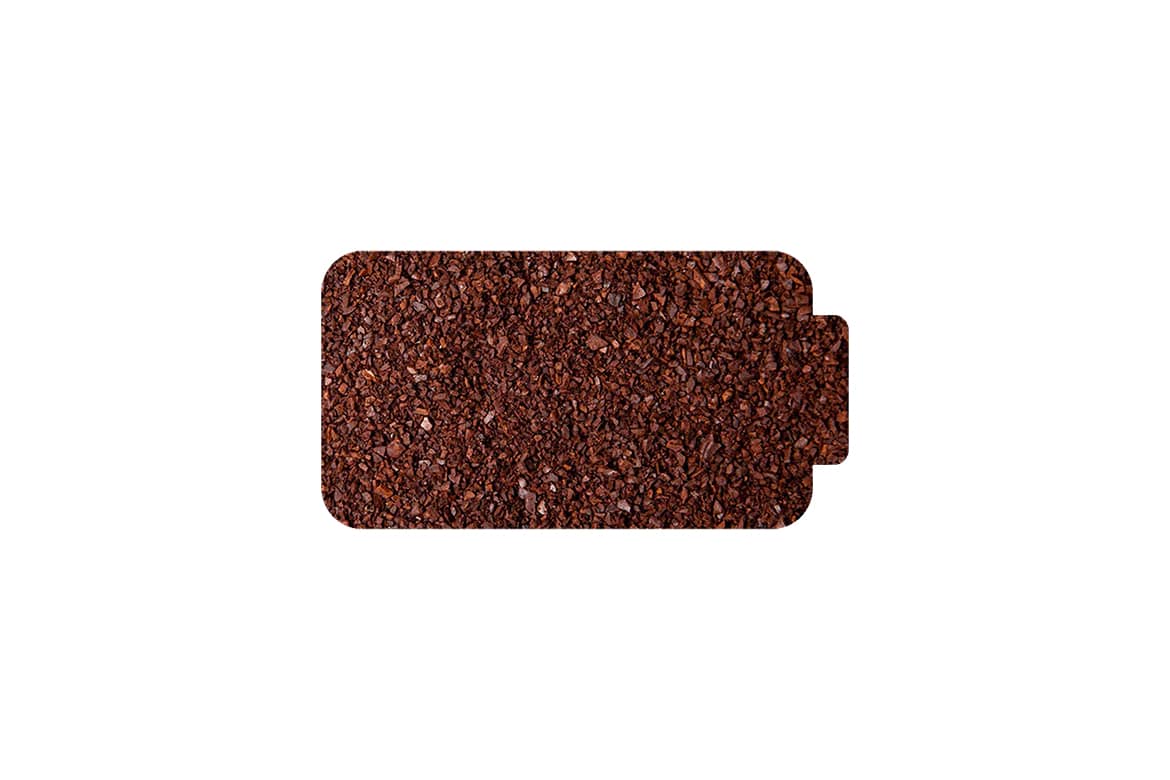Scientists have for years been finding new and novel uses for spent coffee grounds. The draw of coffee, other than it basically being the Swiss army knife of organic materials, is the prospect of turning a widely available substance that often is otherwise headed to the landfill. Scientists have already found a way to turn used grounds into electrodes for lithium-ion batteries, but now, they’ve discovered how to do it for a next-generation battery. Coffee can be used for electrodes in lithium-sulfur (Li-S) batteries, and they half 10 times the life span of lithium-ion batteries.
As reported by the Australian government’s Nuclear Science and Technology Organization (ANSTO), the findings are the work of the Australian Research Council’s Microrecycling Research Hub, led by ARC Laureate Professor Veena Sahaiwalla, who found coffee grounds to be a viable and sustainable material for battery electrodes.
Li-S batteries show promising potential in terms of lifespan, but they face the “critical issue” of losing battery capacity after multiple charges. This is due to the “poor stability of the sulfur-containing chemicals,” per the article. One solution for this is to create a “porous architecture” in the electrodes that works to trap the chemicals, keeping them from escaping. Enter coffee.
Coffee grounds can be turned into porous carbon through pyrolysis, a process by which the grounds are heated at high temperatures in an environment without oxygen. Along with being cheap, abundant, and sustainable, the coffee carbon also has a hierarchy of pore sizes that the researchers believe will be better able to trap the chemicals.
When testing the coffee-carbon, they found it improved the stability and performance of the Li-S battery.
So when you’re new phone never runs out of batteries while you are perusing hot coffee content all day long, you can thank coffee for that. Is this what a circular economy is?
Zac Cadwalader is the managing editor at Sprudge Media Network and a staff writer based in Dallas. Read more Zac Cadwalader on Sprudge.
<?php echo adrotate_group(54); ??><?php echo adrotate_ad(589); ??><?php echo adrotate_group(56); ??><?php echo adrotate_ad(589); ??><?php echo adrotate_group(69); ??><?php echo adrotate_ad(589); ??><?php echo adrotate_group(38); ??><?php echo adrotate_ad(589); ??><?php echo adrotate_group(51); ??><?php echo adrotate_ad(589); ??>
Zac Cadwalader
May 23, 2024


